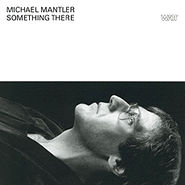
SOMETHING THERE
WATT/13
Michael Mantler (trumpet)
Mike Stern (guitar)
Carla Bley (piano)
Steve Swallow (bass)
Nick Mason (drums)
The Strings of the
London Symphony Orchestra
arranged and conducted by
Michael Gibbs
recorded
February through June 1982
Willow, NY; London
something
there
where
out there
out where
outside
what
the head what else
something there somewhere
outside
the head
at the faint sound so brief
it is gone and the whole globe
not yet bare
the eye
opens wide
wide
till in the end
nothing more
shutters it again
so the odd time
out there
somewhere out there
like as if
as if
something
not life
necessarily
Copyright © 1975 by Samuel Beckett and New Departures, re-printed by permission)
How did you choose the musicians on your new album, and why these particular ones?
First of all, they are my friends, and I prefer to work with friends. Carla has produced and played on every one of my records. I consider her indispensable to my music. Steve Swallow has also been involved in almost all of my projects. Both of them are crucial to the first stage of the recording, where they shape and transform the basic original scores I present them with.
I've worked with Nick Mason, who is Pink Floyd's drummer, on an earlier album ("The Hapless Child"), for which he did some engineering. We met at the time through Robert Wyatt, the main soloist on that album. Later on we worked together on a more involved project, Nick's own solo album ("Fictitious Sports"), for which Carla had written the music. I has always liked Pink Floyd and his drumming, and I thought it would be interesting to use him in another context.
I didn't actually meet Mike Stern until the sessions, but he had been recommended by a lot of people, also in particular by Carla, who had heard him with Miles Davis' new band. He's a wonderful musician, and I am extremely pleased with what he contributed, both to the basic tracks as well as to the solo sections.
Michael Gibbs has been a friend for twenty years. He was practically the first person I met when I arrived in the United States, but this is the first time we have ever worked together.
Why did you use strings, and why the London Symphony Orchestra?
My music is basically meant to be orchestral, although, for economic reasons, I've recently had to more or less discontinue writing orchestrally. I also thought that my small group writing had been explored enough in "Movies" and "More Movies", and I was tired of using that format again.
Since
I don't particularly like to perform, I don't have to keep in mind the
feasibility of a live performance, and so I decided to just go ahead and
return to a larger texture. I have always liked strings, but have never
used them as a separate body. Nevertheless, I didn't feel equipped enough
technically to write for and conduct the strings, so I enlisted Michael
Gibbs, who is a masterful orchestrator.
Once he was
involved, he suggested using the best string section available, and so,
after borrowing a great deal oft money, I hired the London Symphony. As
it turned out, they weren't any more expensive than an American studio
string section, and I was able to use Pink Floyd's Britannia Row studio,
which was fortunate, because things were becoming quite complex technically.
Mantler, a musician's musician among New York and Europe's avant-garde circles, has been a tireless worker for the jazz oriented "new-music" scene ... Here we find Mantler's quintet and, of all things, the strings of the London Symphony Orchestra. In a six-part suite inspired by Samuel Beckett's poem "Something There", Mantler and his friends juxtapose solo and ensemble gestures against the astringent yet sonorous strings, skillfully arranged by Michael Gibbs from Mantler's sketches.The contrasts, sometimes bitter, sometimes sweet are poignantly dramatic. Eerie, perhaps even cataclysmic, it's an eruption of both fire and ice.
LAWRENCE JOURNAL-WORLD